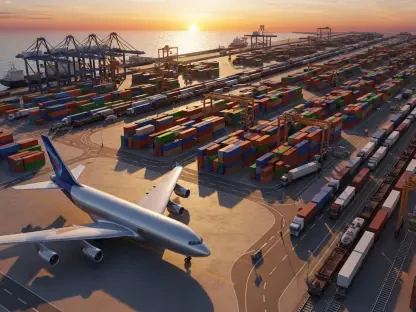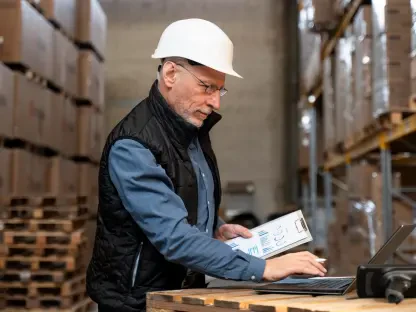Short introduction We’re thrilled to sit down with Rohit Laila, a seasoned veteran in the logistics industry with decades of experience in supply chain and delivery. Rohit’s passion for technology and innovation has kept him at the forefront of industry advancements. Today, we dive into the exciting developments surrounding FedEx’s new global air transit facility at Istanbul Airport, exploring its strategic importance, cutting-edge technologies, and role in shaping the future of air cargo and cross-border e-commerce.
Can you walk us through the key features of FedEx’s new global air transit facility at Istanbul Airport?
Absolutely. This new facility at Istanbul Airport is a game-changer for FedEx. It spans over 25,300 square meters and serves as a major hub for air gateway operations. It’s equipped to handle integrated customs clearance with dedicated teams and also provides office support for seamless operations. Compared to the previous FedEx facility in Istanbul, this one has triple the sorting capacity, which is a massive leap forward in handling volume and efficiency.
What stands out about the technology being used at this hub?
The technology at this facility is really impressive. It features an automated sorting system that streamlines the processing of shipments, making operations faster and more accurate. There are also three AI-equipped x-ray machines for security screening, which enhance both speed and precision while ensuring safety. On top of that, the hub has specialized capabilities for handling dangerous goods, which is critical for maintaining compliance and safety standards in air cargo.
Why do you think Istanbul was chosen as the location for this significant investment by FedEx?
Istanbul’s geographic position is a huge factor. Sitting at the crossroads of Europe, Asia, and Africa, it’s uniquely situated to act as a bridge for international trade. This makes it an ideal logistics hub, especially for cross-border e-commerce, which is booming right now. The location also allows FedEx to connect its vast air network with one of the largest road networks in the region, linking 45 countries and facilitating smooth multimodal transport.
Could you shed some light on the scale of operations at this new facility?
The scale is quite remarkable. The facility can process up to 7,000 packages per hour, which shows just how much volume it’s built to handle. FedEx operates 30 weekly flights through Istanbul, connecting to key markets like the US, Europe, and the Middle East. Additionally, it supports the regional road network, handling about 1.3 million shipments weekly, which ties the air and ground operations together seamlessly.
How does this facility fit into FedEx’s broader goals for global airfreight?
This hub is a strategic piece of FedEx’s global airfreight growth puzzle. It strengthens their network by integrating air and ground operations, which is crucial for scalability. It also offers customers greater flexibility to adapt to a constantly changing trade environment. In the long run, this investment helps FedEx capture growth in the airfreight market and build lasting value by positioning them as a leader in efficiency and connectivity.
Istanbul Airport has been making waves as a major cargo hub. Can you tell us more about its significance in the industry?
Istanbul Airport is a powerhouse in air cargo. Last year, it was Europe’s busiest cargo hub, handling nearly 2 million tons of cargo, with a year-on-year growth of 24%. That’s a staggering figure and outpaces many other European hubs. Its ambitious target of handling over 5 million tons in the future shows its commitment to becoming a world leader in this space, and partnerships like the one with FedEx only solidify that trajectory.
What’s your forecast for the future of air cargo hubs like Istanbul in shaping global trade?
I believe hubs like Istanbul will play a pivotal role in the future of global trade. As e-commerce continues to grow and supply chains become more complex, strategically located hubs with advanced technology will be the backbone of efficient logistics. Istanbul, with its unique position and rapid growth, is set to become even more critical, driving connectivity and speed in international shipping. We’re likely to see more investments in such locations as companies race to meet rising demand and navigate geopolitical shifts.









